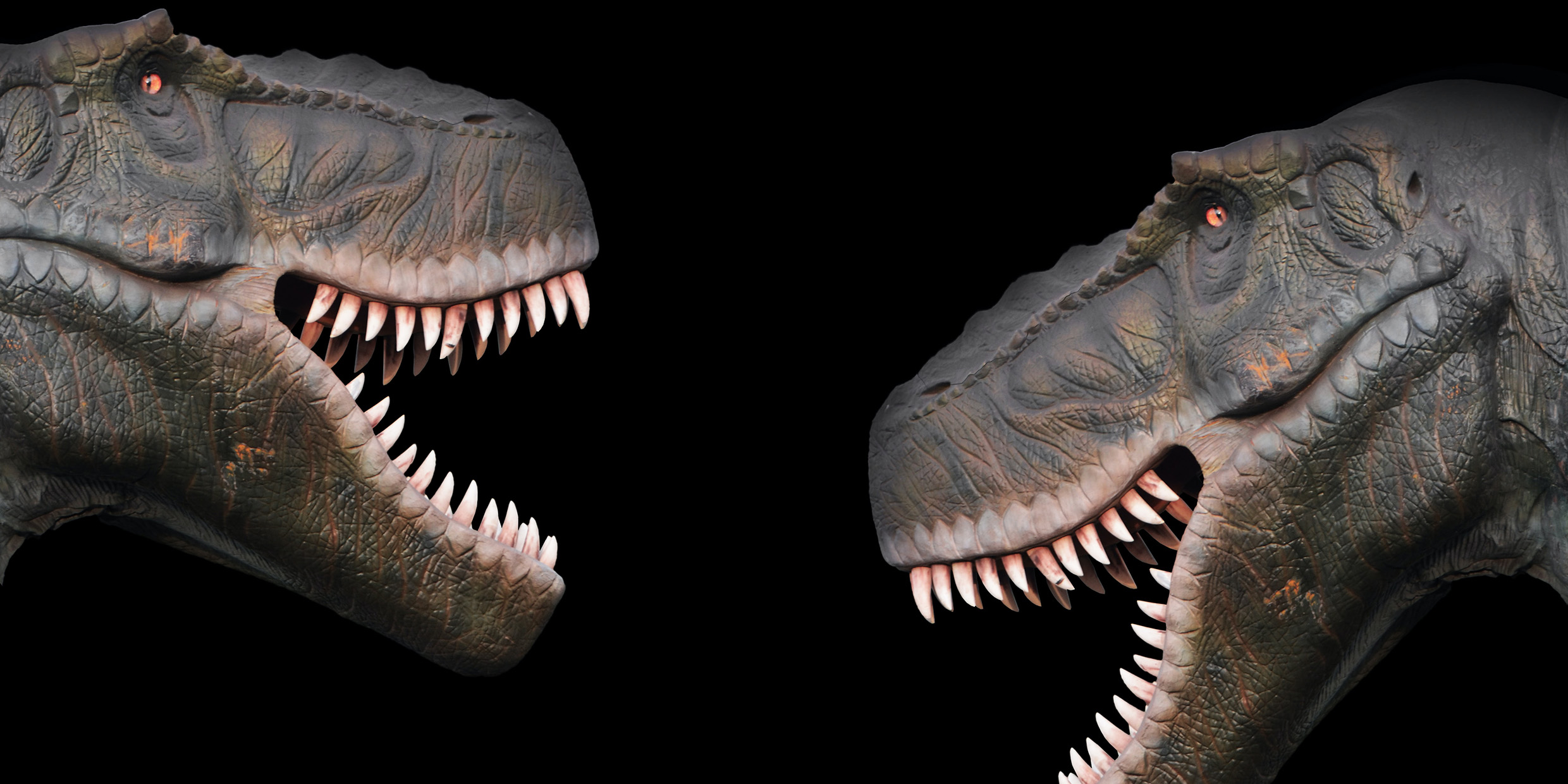Originally published 6 July 1992
They call him Dino Don.
He is Don Lessem, of Waban, Massachusetts, and he is editor and chief writer of Dino Times, a monthly newspaper for kids about dinosaurs, published by the Dinosaur Society.
The brightly-illustrated newspaper is full of stories, games, and projects, all related to contemporary dinosaur research. There are also Letters to Dino Don:
“Dear Dino Don, Who was the meanest dinosaur?”
“Probably the last dinosaur was the meanest. It couldn’t find another dinosaur to eat or play with. Wouldn’t that make you mean? Tyrannosaurus rex was the last and the biggest dinosaur killer. It probably did not have a nice personality.”
“Dear Dino Don, Where do dinosaur hunters get their tools?”
“At the hardware store. Dinosaur diggers use mostly picks and shovels to dig away the rocks that lie over fossils. Scientists sometimes even use a toothbrush to clean a fossil. But not the one they brush their own teeth with. I hope.”
Don Lessem wants kids to have access to the latest scientific information about dinosaurs. He also wants them to share the thrill of discovering how dinosaurs lived — and died. No professional writer knows more about these things than Lessem.
During the past half-dozen years, he has made himself into a cottage industry of dinosaurs. He has traveled to five continents to research his book, Kings of Creation, about dinosaurs and the scientists who hunt them. He has written about dinosaurs for Smithsonian, Discover, Omni, The New York Times, and the Boston Globe, among many other publications. He was consultant, writer, and on-air host to programs on dinosaurs broadcast on the PBS Nova series. He is founder of The Dinosaur Society, a nonprofit organization that benefits dinosaur science and education.
Dino Times runs riddle that reflect its target age group.
“Q. What do you call a dinosaur policeman? A. Triceracops!”
“Q. What do you call a dinosaur found in the Lone Star State? A. Tyrannosaurus Tex!”
And what do you call a grown-up man with a wife and two kids who eats, sleeps, and breathes dinosaurs? You call him a man who absolutely loves the vanished reptiles, even (maybe especially) the biggest and the meanest.
Don attributes his passion for dinosaurs to his Aunt Sylvia, who loved everything about the natural world. Aunt Sylvia lived in an apartment in New York City. There was a window in her kitchen where if you stood on a chair you could just catch a glimpse of a tree with a nesting robin. When Don was a kid, his aunt held him up on that chair.
She also took him every Sunday to the American Museum of Natural History. Like so many kids, this is where Don discovered dinosaurs. He was only 5 years old, but soon he knew so much about the collection of dinosaur fossils that he would go about the museum organizing and leading impromptu tours.
He hasn’t lost his youthful enthusiasm.
Right now he is working on a book about* Tyrannosaurus rex*, with Jack Horner, the famous dinosaur digger; a dinosaur dictionary; a book of essays on why people love dinosaurs, called *God and Godzilla*; a book of profiles of dinosaur hunters; and a whole bunch of dinosaur books for kids. This guy is the *Seismosaurus* of dinosaur writers.
“Featured Creature [in Dino Times]. Seismosaurus. Length: 150 feet, as long as four school buses end-to-end, the longest dinosaur that ever lived. Weight: 50 tons. Diet: Plants. Time: 150 million B.C. Its name means “Earth-shaker reptile.”
Most dinosaur scientists work for the sheer love of what they do. This was something else that attracted Don to the subject of dinosaur research, and why he wants to help.
Less than $1 million is spent each year on dinosaur research; at the same time, billions of dollars are spent on dinosaur products — T‑shirts, stuffed animals, games, foods. Few of these products succeed in accurately portraying the discoveries, the process, and the excitement of dinosaur science. That’s why Don founded the Dinosaur Society, whose membership includes the world’s leading dinosaur scientists, artists, authors, and educators. That’s why Don donates part of his own income to dinosaur science. And that’s why he writes Dino Times.
What about dinosaurs makes them so fascinating to children? Lessem thinks it’s that they are unique in being both myth and reality. They embody our fantasies of monsters and fearful adventures, yet they are quite real and kids can master their daunting names.
That’s why kids love to read about dinosaurs, says Dino Don. They are big and terrifying, they have nifty names — and they are dead.
They are not under the bed.



